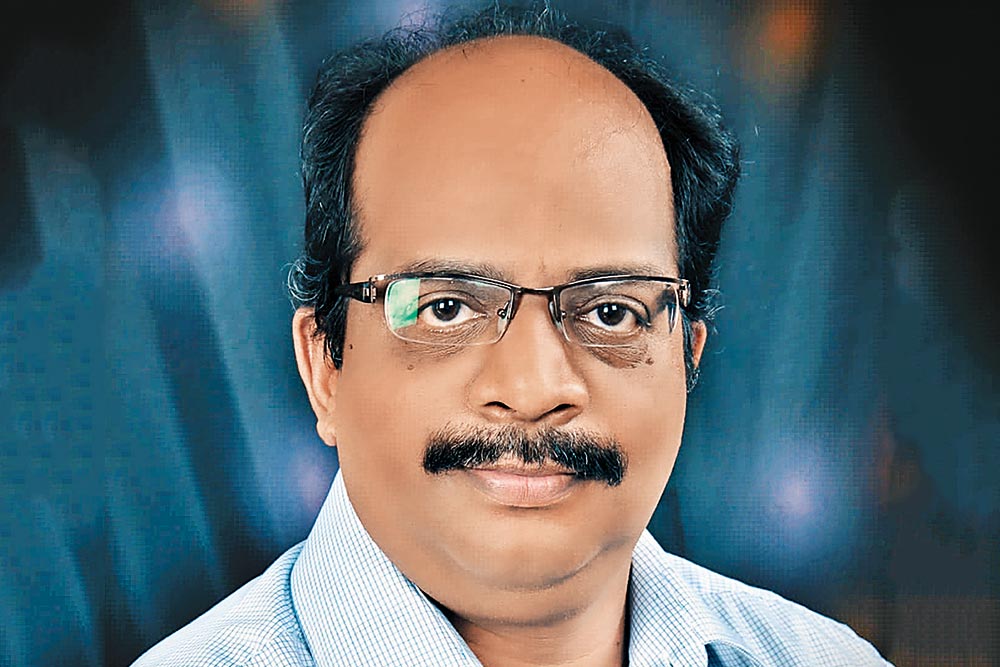Mysuru-based Gowtham T.N., who works with a multi-national financial firm, has been investing in mutual funds ever since he met mutual fund distributor D.N. Prasad.
Before meeting Prasad, Gowtham was mainly investing in traditional avenues like bank fixed deposits, bonds and post office investments. However, the returns from these instruments were unable to beat inflation and the ever-increasing costs of lifestyle. “I realised that it was easy to earn but when it comes to investing in avenues which could take care of inflation and augur well for my lifestyle, I had absolutely no choices,” says Gowtham.
Prasad led him on the right course. “When I met him first, I could see Gowtham’s eagerness to create wealth. He was into traditional and conservative financial instruments,” says Prasad.
Prasad spent time with Gowtham to understand what he wanted to invest for and assessed his risk-taking ability.

D N Prasad, AMFI registered Mutual Fund Distributor
Gowtham has four main financial goals—owning a house, child’s education, travel plans and retirement. Prasad introduced him to mutual funds to address these goals. He explained the flexibility that mutual funds offer and how they generate risk-adjusted returns through diversification and asset allocation strategies.Under Prasad’s guidance, Gowtham started investing through the systematic investment plan (SIP) route. Once he saw the value of his investments rising, he kept increasing the SIP amount on a regular basis.
His financial advisor, in turn, ensured that Gowtham’s portfolio follows the basics of asset allocation, irrespective of the market movements, and made it a point to remain focused on his goals. Further, he ensured that regular flow of information and knowledge is imparted to Gowtham. “I want my investors’ experience to be good in the long term so that they are satisfied,” says Prasad.
In the 20 years that Gowtham has been with a financial advisor, his investments have generated a compounded annual growth rate (CAGR) of 24 per cent, which would not have been possible with traditional investments. “Not only have I got inflation-beating returns, but my financial goals are also well within my reach,” says Gowtham.

The financial lessons which Gowtham learnt in the last two decades are summarised below.
- Wealth Creation In the Long Term: Typically, an investor thinks long term is three-five years or a maximum of 10 years. But for Gowtham, long-term investing means wealth creation for several generations. He fully understands that wealth creation is not a short-term exercise. “It does take time and tremendous discipline. You need to believe in your goals and work hard to fulfil them without digressing from them,” says Gowtham.
- Track Record Of Schemes: Generally, it is observed that investors see the last few years’ performance of a scheme and decide upon their investment decision. This practice may prove hazardous, according to Gowtham. Such a short-term track record does not spell out the full potential of the scheme. One should invest in schemes which have a long-term proven track record of, say, seven to 10 years. This span of duration is adequate to assess a scheme’s potential to create long-term wealth.
- Don’t Track Portfolio Too Frequently: Looking at investment portfolios too frequently—weekly or monthly—must be avoided. By doing so, one gains nothing. But that does not mean that portfolios should not be reviewed. “One must keep a track of your investments by reviewing it once in a year with your financial advisor. This helps clear or avoid biases or queries which an investor may have,” says Gowtham.
- Patience Is The Key: Since the markets are bound to be volatile in the short term, one should not read too much into short-term notional losses and stay focused on long-term financial goals. Losing patience may prove detrimental to your investment and can cause long-term collateral damage as you may lose on the compounding benefits.
- Choose A Trustworthy Financial Advisor: Most important of all, an investor needs to choose a trustworthy financial advisor. Then, the advisor will be like a financial doctor and an expert who will help you reach your financial goals. A financial advisor is more like a family member as there is a long-term relationship and an in-built conviction about your financial well-being. “Having a good advisor is also important to manage risk and opportunities,” says Gowtham.
Gowtham tried investing in several financial instruments but never found a better alternative to mutual funds. Mutual funds are more like solution providers than merely financial products. “I laid my hands on various ways to create wealth and finally decided to go with mutual funds. ‘Mutual Funds Sahi Hai’,” he concludes.
Disclaimer
Financial Planning of Mr. Gowtham T.N. is based on the “personal opinion and experience” of Mr. D N Prasad, an AMFI Registered Mutual Fund Distributor, should not be considered professional financial investment advice. No one should make any investment decision without first consulting their advisor and conducting research and due diligence.

